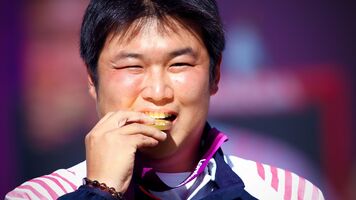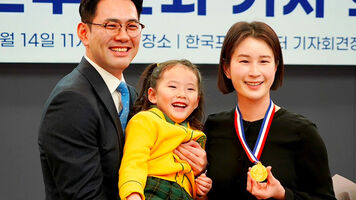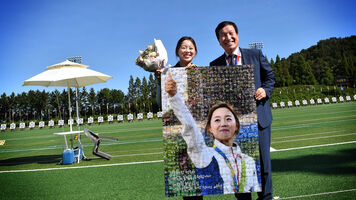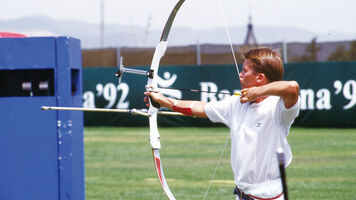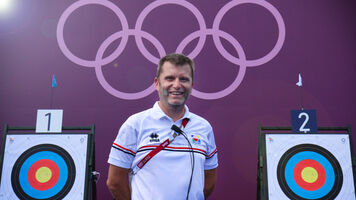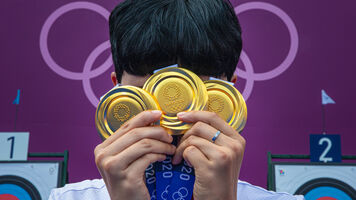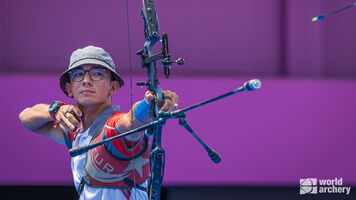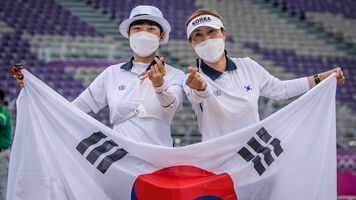Why do archers win gold at their first Olympics?
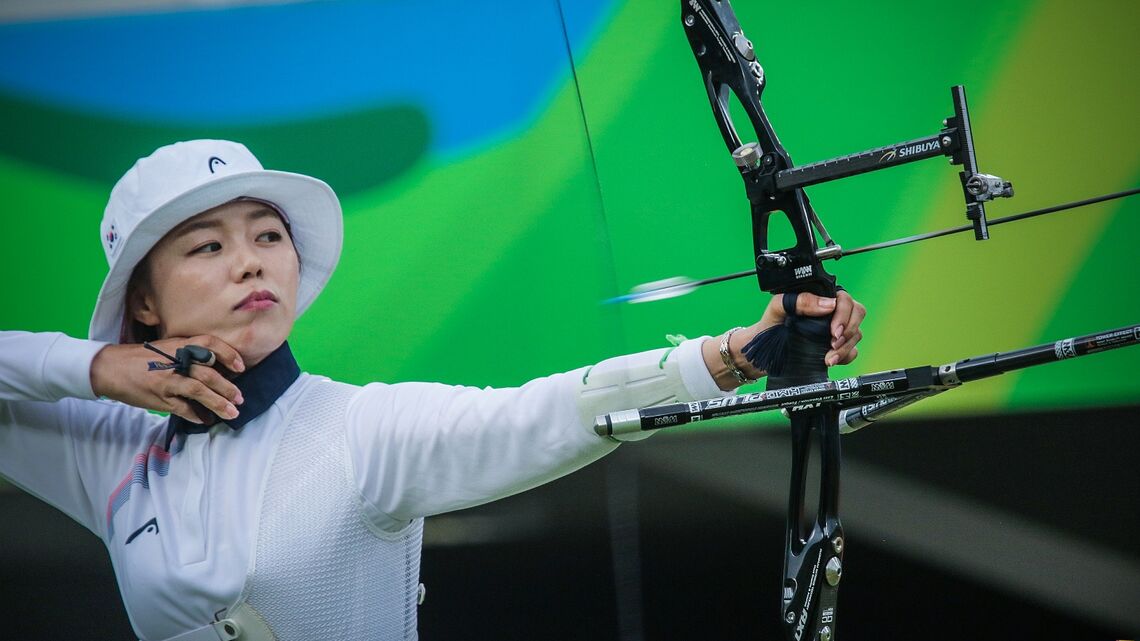
Chang Hye Jin, the reigning Olympic Champion, knows better than most how difficult becoming an Olympian can be. The two-time gold medallist narrowly missed out on qualifying for the Games in her first attempt, placing fourth in the selection tournament that decided which three members of the Korean national team would go to London 2012.
It took four long years for her to finally break through. But she was rewarded for her patience. Competing alongside defending individual Olympic Champion Ki Bo Bae and then-world number one Choi Misun, it was the comparatively unheralded Chang who ended up victorious at the Rio 2016 Olympic Games.
“People often say ignorance is the best medicine,” Chang said recently. “The pressure an athlete faces influences their performance in that competition. I was able to focus on the competition itself, rather than its outcome, and enjoy the competition because I was unaware of the pressure involved in that situation.”
Five years and one interminable pandemic later, Chang now finds herself in a position familiar to many an Olympic archery gold medallist. Just as she emerged from Ki’s shadow to win the world’s top prize in 2016, it’s equally likely that an insurgent archer making their international debut claims gold at this summer’s postponed Tokyo 2020 Olympic Games.
For reasons both logical and perplexing, a lack of previous Olympic experience doesn’t appear to be an obstacle for archers at the Games. If anything, an absence of exposure appears to be an asset.
Since the modern archery competition began at the 1972 Olympics, 19 of the available 24 individual gold medals have been won by athletes appearing in their first Olympics.
“In every competition in archery, having experience helps – except in the Olympics,” said Dutch archer Rick Van der Ven, who upset a heavily favoured Im Dong Hyun, 7-1, in the second round at the Games in London. “In your first Olympics, you aren’t thinking as much. It’s a magical moment. But that eventually fades. In your second Olympics, you start to think about doing better than your first.”
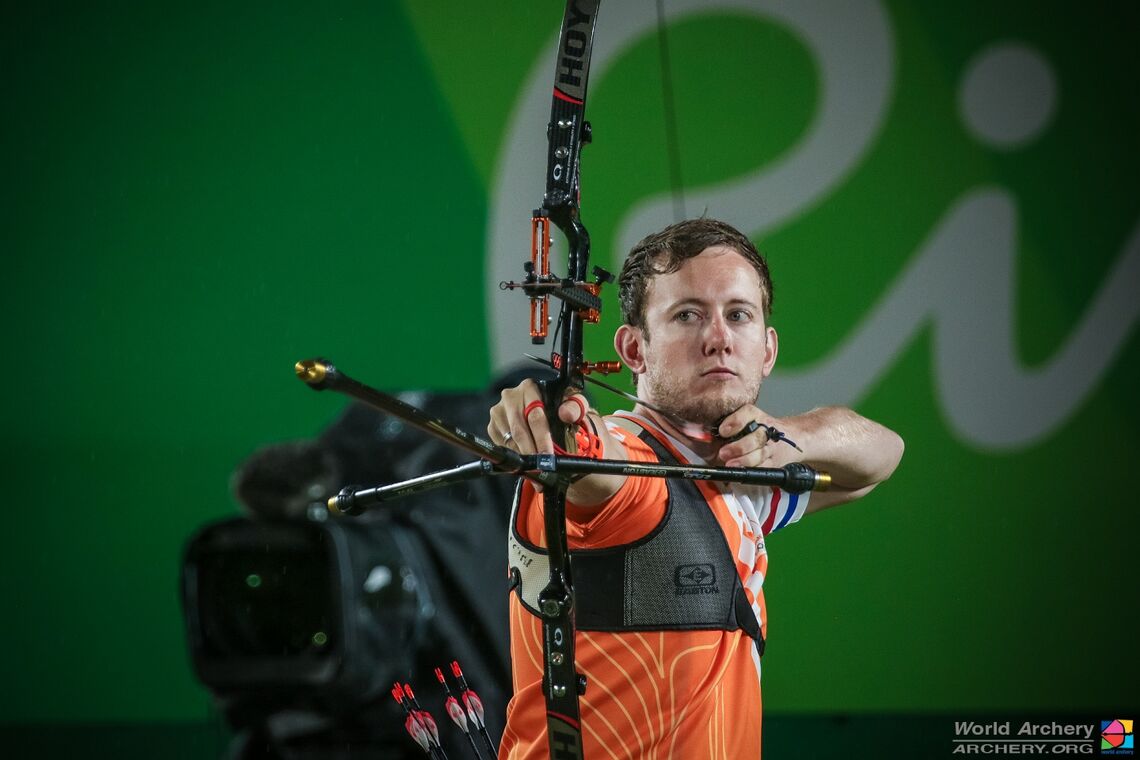
A relative unknown in 2012, Van der Ven was projected as a medal contender in 2016 after advancing to the semifinals during his Olympic debut. Instead, he found himself on the other side of the first-timer equation. After underperforming in the ranking round in Rio, the world number seven fell to then-20-year-old Patrick Huston in his first match, 6-4.
“I am the 2016 Olympic Champion,” Huston wrote in his notebook leading up to the Games, a positive affirmation used by many archers who practise visualisation techniques, but the approach is instructive when assessing who succeeds on the world’s biggest stage.
Huston eventually fell short of his goal, but it was perhaps that sense of fearlessness against Van der Ven that helped carry the day.
While experience and a sense of preparedness often go hand-in-hand, many archers concede, arriving at the Olympics without prior knowledge of the pressures that await also means entering a situation unburdened by the disappointment of failure that can plague an athlete late into their career.
“Experience isn’t always beneficial,” said Guy Matzkin, a sports psychologist and the head coach of the Israeli team. “Sometimes the experience is of failure – of reaching that level and not winning. At the same time, if you’ve never lost before, why would you lose now? The amount of courage that inspires is probably amazing.”
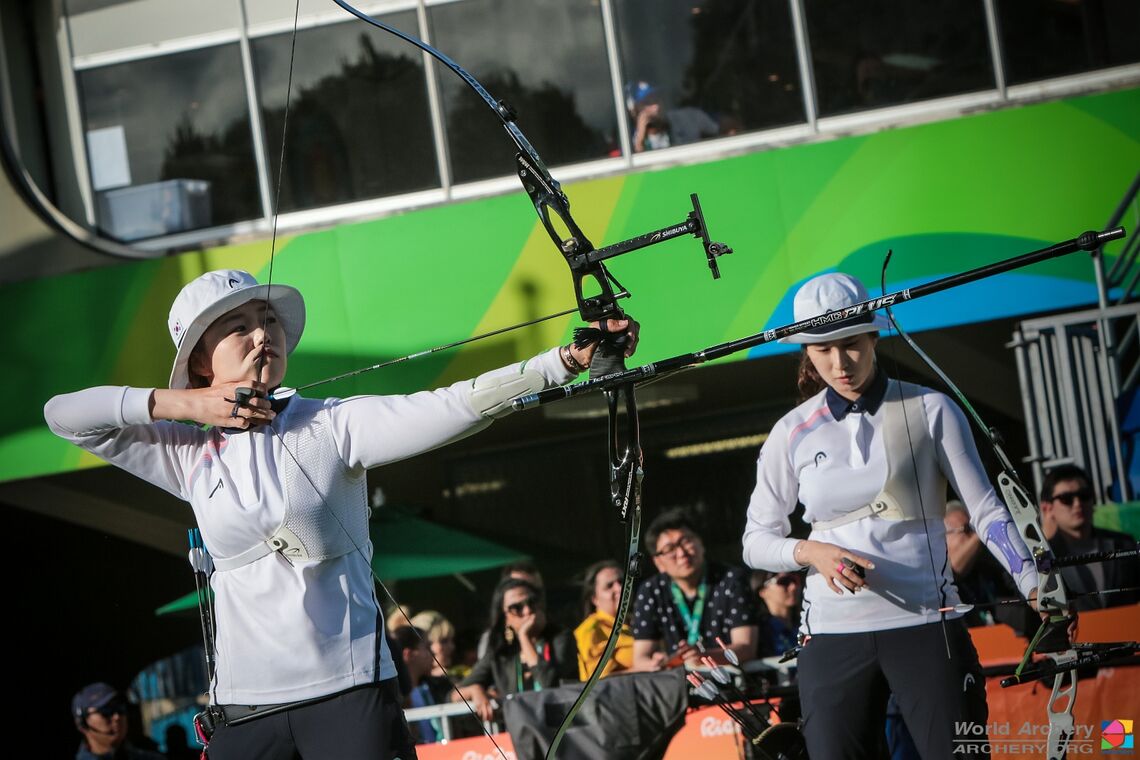
Korea’s dominance in the women’s Olympic competitions is a testament to this theory. The sport’s leading competitive nation never relies on a single archer to win, instead placing faith in its structures and an abundance of resources to elevate its programme beyond that of other countries.
Eight different Korean women have claimed individual gold since 1984, with all eight having won at their first Olympics.
But the men’s division has been no less unpredictable; just three of 12 individual gold medals have been won by archers with previous Olympic experience, despite an apparent uniformity among the countries in contention.
Defending champions reliably suffer the same fate, returning to an Olympic atmosphere that bears little resemblance to the one they first entered.
It is no longer a moment of discovery, explained Sebastien Flute, champion at the Barcelona 1992 Olympic Games. The joy and wonder that accompany the spectacle of an athlete's first opening ceremony are gone, replaced by a familiarity with the process and the psychological burden of duplicating the result from their previous Games.
Instead of embracing the opportunity to live in the Olympic village, archers are preoccupied with fulfilling commitments from sponsors and other tedious media obligations.
“For every one interview I did before my first Olympics in 1992, there were 10 or 20 leading up to the 1996 Games in Atlanta,” Flute said.
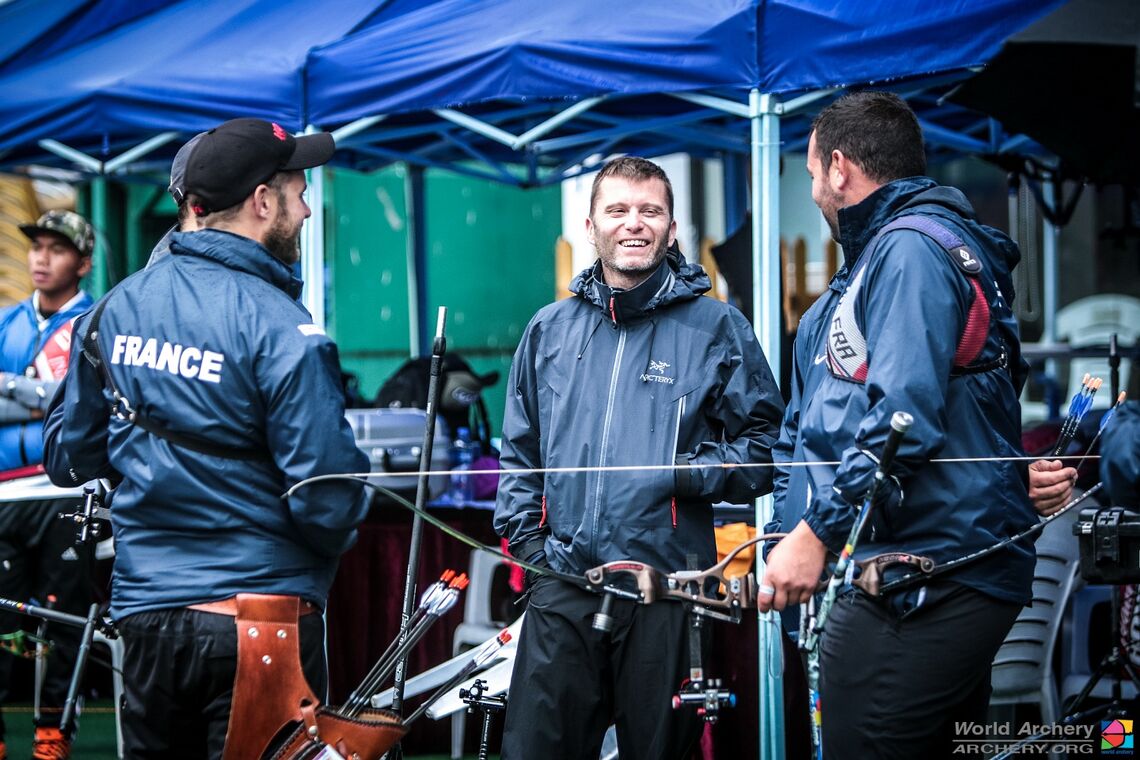
Perhaps uncoincidentally, Flute didn’t make it past the first round in Atlanta. Despite all of his previous success, the Frenchman lost to Martinius Grov of Norway, the man he had defeated in the semifinals four years prior.
“You don’t analyse things too deeply at your first Olympics. You just let it happen to you,” Flute said. “It’s also a question of motivation. When you’ve accomplished your goal, what is the motivation to get something you already have?”
Yet that explanation only goes so far. While it is understandable that someone would lose motivation after winning gold, a similar logic suggests that withholding that sense of accomplishment would make the desire to succeed even stronger. The same yearning that drives familiar platitudes of redemption and triumphing over adversity, however, could be at the root of the obstacles preventing archers from winning gold after their first Olympics.
“You feel like you’ll have another go,” gold medallist Simon Fairweather said of his mindset at his first Olympics. “This is the first of many attempts, rather than this might be my last attempt.”
But Fairweather didn’t win at his first Olympics, and he didn’t win at his second or third, either. It wasn’t until his fourth, competing on home soil at the Sydney 2000 Olympic Games, that the Australian finally fulfilled the promise of his victory at the 1991 World Archery Championships.
“Your perspective changes as you get older,” Fairweather said. “‘It didn’t work last time, so why is it going to work this time?’ Some people kid themselves – ‘it’ll be my day one day’ – but why would it? You aren’t doing anything differently. Why do you think it will happen today when it hasn’t the last five times?”
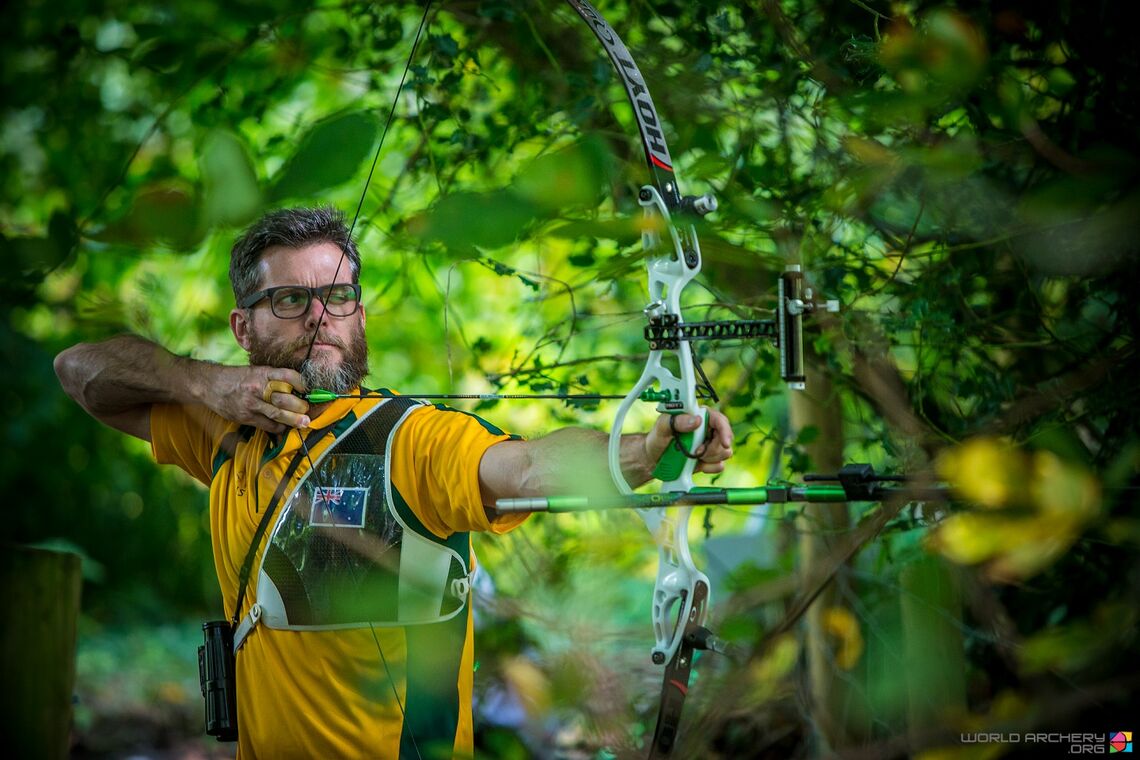
The Olympics in Sydney offered Simon a vital change of pace.
First, Australia hired coach Kisik Lee, one of the first Korean officials to work abroad, bringing a new approach to training that was buoyed by the host nation’s willingness to increase funding for its elite athletes.
Perhaps most crucial, though, was Fairweather’s shift in mindset. Rather than view the added scrutiny of competing for the host nation as a daunting proposition, Fairweather began focusing on the opportunities the changes afforded him.
“It was very reassuring for us,” Fairweather said. “We had everything behind us that we could have to go into it and do our best.”
Fairweather’s success is a beacon for archers who have already attended their first Olympics. Whether it’s world number one Brady Ellison, looking to add the missing trophy to his otherwise exemplary career, or the silver medallist of 2012, Takaharu Furukawa, who will likely represent host country Japan in Tokyo, there is still hope for tenured archers seeking individual gold.
If anything, the delayed gratification might make finally winning even more special. Or, in the case of Fairweather, it liberated him from the single-minded pursuit that fueled his competitive archery career.
“I value my career in sports. It taught me and shaped me. But now I’m focused on the simple things that make me and my wife happy today,” Fairweather said recently. “I’m sure if you told me that 25 years ago I’d have had an argument for the opposite, and maybe one needs to have experienced both. Or, maybe it’s just a perspective that comes from being older. Perhaps it’s just that.”








